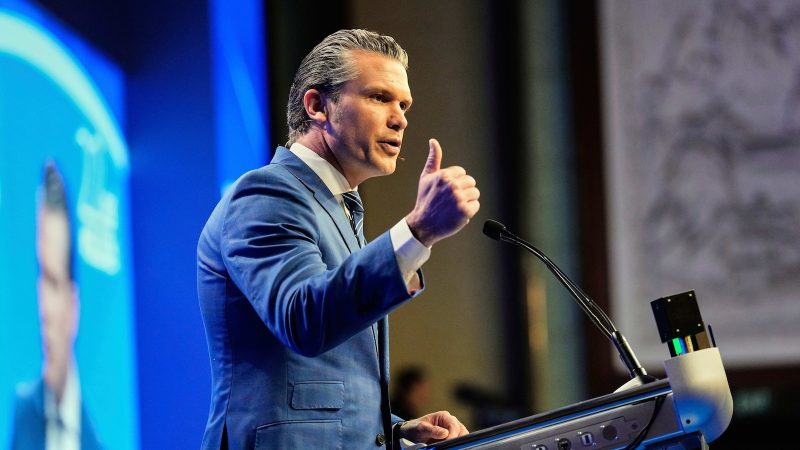
Defense Secretary Pete Hegseth delivered a stark warning at the Shangri-La Dialogue in Singapore this past Saturday. He reassured U.S. allies in the Indo-Pacific of continued American support against Chinese aggression, emphasizing that potential military action against Taiwan could be imminent.
Hegseth’s speech, delivered at the high-profile security summit organized by the International Institute for Strategic Studies, underscored the Trump administration’s view of the Indo-Pacific as a critical region. He stressed the U.S.’s commitment to standing by its allies in the face of escalating Chinese military actions, particularly concerning Taiwan and the Philippines.
While stating that the U.S. does not seek conflict, Hegseth made it clear that the United States will not be pushed out of the region and will not allow its allies to be intimidated. His comments come amidst China’s significant military buildup and increasing naval and air presence around Taiwan, actions that have fueled concerns of an impending invasion.
Hegseth acknowledged the uncertainty surrounding China’s next move, but stressed the need for preparedness and vigilance. He explicitly stated that the U.S. is preparing for war, not to initiate conflict, but to deter it and achieve peace through strength. He called upon allies and partners to join the U.S. in this effort, highlighting the urgency of the situation and the need for immediate action.
The Defense Secretary’s address also touched upon the increased tensions with the Philippines, where Chinese vessels regularly harass Philippine ships in the South China Sea. Hegseth highlighted the strained U.S.-China relationship, referencing the steep tariffs imposed by the Trump administration on Chinese imports, and the subsequent reciprocal tariffs from China, followed by a tentative agreement to reduce these tariffs.
Hegseth outlined the Trump administration’s approach to restoring deterrence, advocating for increased U.S. military presence in the western Pacific, bolstering the defense capabilities of allies, and rebuilding the U.S. defense industrial base. He urged Asian countries to emulate NATO members by increasing military spending to 5% of their GDP, emphasizing the need for greater shared responsibility in regional security.
Interestingly, China’s defense minister did not attend the Shangri-La Dialogue this year, sending a delegation from its National Defense University instead. Hegseth, when questioned about this absence, stated that while they couldn’t account for China’s non-attendance, the U.S. presence contributed to regional stability and peace. Hegseth’s remarks were juxtaposed against French President Emmanuel Macron’s opening address, which emphasized the need for a new alliance between Europe and Asia to prevent becoming collateral damage in the power struggle between the U.S. and China. Macron raised concerns about double standards in international law, referencing the potential implications for Taiwan if Russia’s annexation of Ukrainian territory remains unchallenged.
Hegseth’s address at the Shangri-La Dialogue served as a strong statement of the Trump administration’s commitment to its allies in the face of perceived Chinese aggression, emphasizing the need for proactive measures to deter potential conflict and maintain regional stability.










